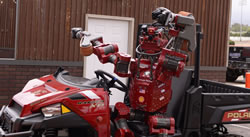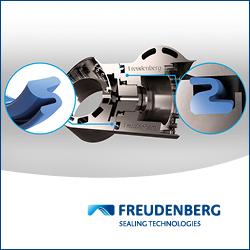Carnegie Mellon, GE Ventures bringing robotics accelerator program to Pittsburgh
 By Deborah M. Todd / Pittsburgh Post-Gazette: A new accelerator program and a $20 million venture fund started by Carnegie Mellon University and GE Ventures could brand Pittsburgh as the official home of the globe’s growing robotics industry.
By Deborah M. Todd / Pittsburgh Post-Gazette: A new accelerator program and a $20 million venture fund started by Carnegie Mellon University and GE Ventures could brand Pittsburgh as the official home of the globe’s growing robotics industry.
CMU’s National Robotics Engineering Center and GE Ventures, the investment arm of Fairfield, Conn.-based General Electric, have teamed up to create The Robotics Hub, an early-stage startup accelerator program designed to draw the nation’s best advanced robotics firms to Pittsburgh and to keep those started here firmly in place.
The for-profit Robotics Hub will provide funding through newly created Coal Hill Ventures and access to equipment at CMU and the NREC to chosen companies by 2016, in addition to putting their creations on a fast track toward commercialization.
“The strategy that’s most important to GE is to really get behind startups and help them scale. A lot of companies can come with the money, but what we bring is the ability to scale and the opportunity to commercialize quite quickly, said Alex Tepper, GE Ventures managing director. Cont'd...
Comments (0)
This post does not have any comments. Be the first to leave a comment below.
Featured Product

